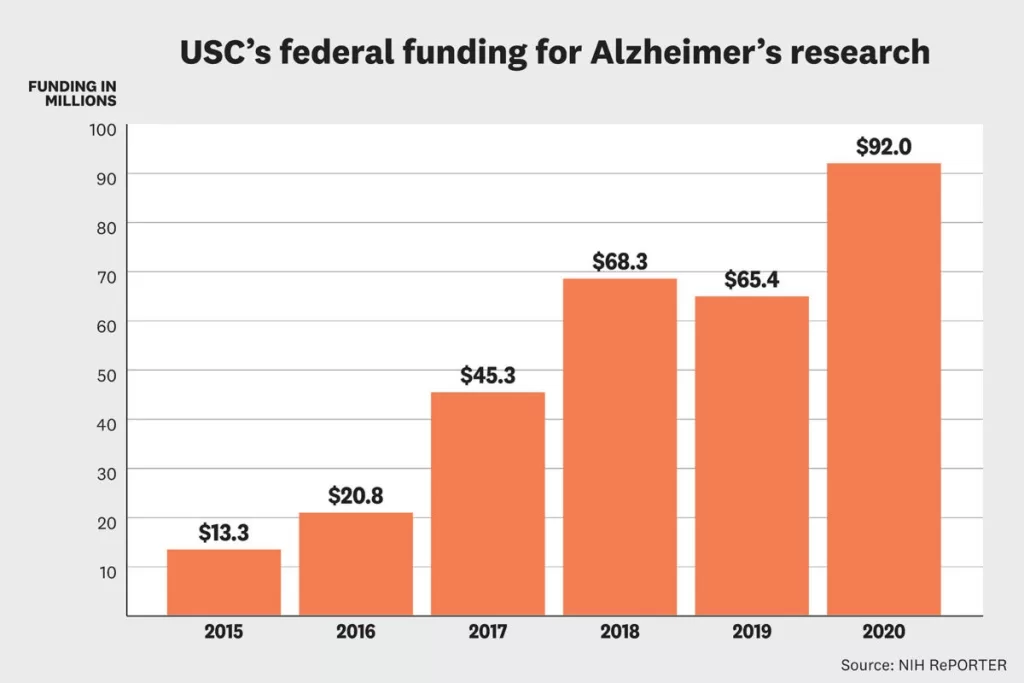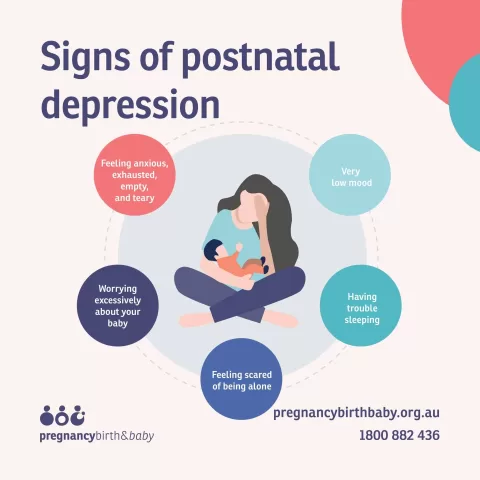Funding for Alzheimer’s research is urgently needed as we confront the rising tide of this devastating disease that impacts millions of families. As more families experience the heartache associated with Alzheimer’s, the call for increased support for Alzheimer’s research becomes ever more critical. The National Institutes of Health (NIH) plays a pivotal role in advancing knowledge and treatment options, yet continued investment is essential to drive meaningful breakthroughs. By supporting Alzheimer’s disease funding, we not only seek a cure but also enhance the quality of life for those battling this relentless condition and their caregivers. It is vital that stakeholders, including policymakers, take decisive action to invest in Alzheimer’s research, fostering hope for a brighter future for many.
The quest for understanding and combating cognitive decline requires significant financial backing, especially in the context of neurodegenerative disorders like Alzheimer’s. Addressing the pressing need for resources allows us to explore innovative treatment avenues while simultaneously providing support to individuals and families navigating this challenging journey. Ensuring robust financial commitments for studies related to memory impairment not only enhances the potential for breakthroughs but also signifies our collective responsibility to those afflicted. By prioritizing research initiatives, we can make strides in improving outcomes for affected individuals and offer respite for their loved ones. United efforts to boost investment levels in this area will pave the way for transformative changes in how we approach this formidable health crisis.
The Crucial Need for Increased Alzheimer’s Research Funding
The need for increased funding for Alzheimer’s research has never been more imperative. Each year, countless families face the harrowing realities of Alzheimer’s disease, a condition that dismantles memories and erodes identities. The loss that families experience is immeasurable, and without significant investment in research, these stories will continue to multiply. Supporting Alzheimer’s research means providing the necessary resources to develop innovative treatments and ultimately discover a cure. As highlighted in Dana Lietzau’s poignant letter, it is essential for representatives, such as Rep. Michelle Fischbach, to advocate for increased Alzheimer’s disease funding in the upcoming Fiscal Year 2026 budget.
Furthermore, the National Institutes of Health (NIH) plays a central role in advancing Alzheimer’s research. Their funding has been pivotal in achieving recent breakthroughs; however, to transform these discoveries into viable treatments, we must amplify our efforts. Investing in Alzheimer’s research is not merely about immediate gains but about promising future outcomes—outcomes that could significantly alter the trajectory of this disease for millions of people. By prioritizing funding for Alzheimer’s research, we send a powerful message that every life impacted by this disease is worth fighting for.
Advocating for Alzheimer’s Research: A Call to Action
In her letter, Dana Lietzau raises a crucial point about the proactive steps that need to be undertaken to combat Alzheimer’s. Advocacy for support of Alzheimer’s research is paramount; we must engage not just lawmakers, but also the community to demonstrate the profound need for change. Constituents have an essential role in voicing their concerns and pushing for reform that places Alzheimer’s research funding at the forefront of public health priorities. When we advocate for robust support for Alzheimer’s research, we are advocating for hope and healing for millions facing this relentless disease.
Moreover, community involvement can significantly bolster funding initiatives. Organizations like the Alzheimer’s Association of MN/ND provide essential resources, yet they also rely on public support and government backing to thrive. By engaging community members in dialogue about the importance of research funding, we can elevate the conversation and galvanize collective action. Together, we must press forward, supporting our representatives in their efforts to secure the necessary allocations that will fuel innovations in Alzheimer’s research.
The Role of NIH in Alzheimer’s Research and Funding
The National Institutes of Health (NIH) has been instrumental in advancing Alzheimer’s research through its funding mechanisms. The NIH’s commitment to this cause highlights the critical nature of government resources in the ongoing battle against Alzheimer’s disease. For researchers, NIH funding provides not only financial support but also credibility, allowing them to pursue innovative projects that may lead to breakthroughs in understanding and treating Alzheimer’s. In recent years, the emphasis on funding for Alzheimer’s research has yielded exciting advancements, but to maintain this momentum, continuous and increased investment is essential.
With further investment from the NIH, there are boundless opportunities for discovery. Enhanced funding could lead to better diagnostics, understanding of the disease’s genetic components, and identification of effective therapeutic avenues. It is an urgent call for the NIH to not only maintain but expand its funding commitments—prioritizing Alzheimer’s disease funding will allow researchers to deepen their investigations, thereby providing hope to families grappling with the impact of this illness. Advocacy for NIH support signals our societal commitment to finding solutions and transforming the landscape of Alzheimer’s care.
Investing in Innovative Solutions for Alzheimer’s Disease
Investing in Alzheimer’s research is fundamentally about driving innovation. With the rapid advancement of technology and increased understanding of neurological science, the potential for finding groundbreaking solutions is within reach. Researchers are exploring various pathways, from drug development to lifestyle interventions, that could significantly alter the lives of those at risk for Alzheimer’s. However, to translate these ideas into reality, we must secure substantial funding that can sustain long-term studies and accelerate the pace of discovery. Every dollar directed towards Alzheimer’s research is a step closer to unearthing solutions that can drastically improve outcomes.
Moreover, innovative funding models could enhance our approach to Alzheimer’s research. Collaborative efforts that pool resources from government, private sector, philanthropy, and non-profit organizations can foster a comprehensive approach to tackling this disease. By collectively investing in Alzheimer’s research, we can harness diverse expertise and maximize the impact of available resources. This collective investment not only enhances the scope of research but can also streamline efforts towards finding effective treatments, ensuring that as many individuals as possible benefit from these advances.
Community Support and Its Importance in Alzheimer’s Research
Community support plays an indispensable role in amplifying the call for Alzheimer’s research funding. Local organizations and health advocates can inspire grassroots movements that highlight the personal stories behind the statistics. Individuals affected by Alzheimer’s can rally together to share their experiences, drawing attention to the urgent need for research funding and driving home the human element of the crisis. This engagement can create a powerful narrative that emphasizes the importance of investing in Alzheimer’s disease funding and helps to break through bureaucratic inertia.
Additionally, educational initiatives within communities can raise awareness about the significance of Alzheimer’s research. Through workshops, seminars, and community events, we can inform families about available resources, empower them to advocate for their needs, and establish support networks. The more informed members of the community are, the more effective they can be in supporting legislation and funding that promotes Alzheimer’s research. Building awareness and fostering community support are essential components of advancing the cause and ensuring that Alzheimer’s research funding is prioritized by our leaders.
How Families Are Affected by Alzheimer’s Disease
For families grappling with Alzheimer’s disease, the emotional toll is profound and multifaceted. Many individuals experience a sense of grief long before they lose their loved ones, as the disease gradually erodes the identities of those they once knew. This process affects not only the patient but also caregivers and family members, who often bear witness to the painful impact of the disease daily. The need for increased funding for Alzheimer’s research directly correlates with the desire to alleviate this suffering by finding effective treatments and understanding the disease better.
Families often take on significant responsibilities, providing care and support to their loved ones, which can lead to exhaustion and decreased quality of life. The strain on emotional and financial resources is immense. By investing in Alzheimer’s research, we can develop resources and support systems that could help reduce the burden on families, facilitating better care and support as they navigate their journey with Alzheimer’s. Each investment made in this area is an investment in the well-being and future of countless families.
Breaking Through Stigmas Surrounding Alzheimer’s Disease
Stigmas surrounding Alzheimer’s disease often hinder open discussion and awareness about the realities of this condition. Families frequently face societal misconceptions that can lead to isolation during the progression of the disease. These stigmas can also impact funding opportunities, as issues surrounding mental health and degenerative diseases are often overlooked. To garner increased support for Alzheimer’s research, we must break down these barriers and foster an environment where candid conversations about the disease are encouraged.
Public advocacy campaigns can play a pivotal role in changing perceptions around Alzheimer’s. By sharing personal stories and highlighting the needs of affected individuals and families, we can confront stigma head-on. Together, we can emphasize the necessity for informed fundraising initiatives and lead in pushing for additional resources to support those engaged in Alzheimer’s research. Raising awareness is a powerful tool that not only promotes understanding but also influences policy change and ultimately drives research funding.
Future Prospects in Alzheimer’s Disease Research
The future of Alzheimer’s research holds immense promise, contingent upon our willingness to invest in understanding this complex disease. As advancements in science and technology continue to unfold, researchers are uncovering new pathways that could revolutionize how we approach Alzheimer’s. For example, the exploration of biomarkers, machine learning, and genomic studies all present opportunities to identify potential interventions earlier and more effectively. However, these studies require substantial funding to develop and implement, highlighting the critical need to invest in Alzheimer’s research.
Moreover, ongoing collaboration among international research communities fosters a more comprehensive understanding of the disease. By sharing findings and collaborating on studies, researchers can accelerate the pace of discovery, translating results into actionable strategies that can benefit individuals impacted by Alzheimer’s. The key is ensuring that funding flows into these collaborations, emphasizing funding for Alzheimer’s research as a global priority. As we look forward, increased investment will be crucial in transforming these promising prospects into tangible benefits for those affected by Alzheimer’s disease.
Frequently Asked Questions
Why is funding for Alzheimer’s research so crucial?
Funding for Alzheimer’s research is essential because it directly impacts the development of effective treatments and potential cures for this degenerative disease. Increased investment allows researchers to explore innovative therapies, understand disease mechanisms, and improve care for those affected by Alzheimer’s, ultimately leading to better health outcomes for millions.
How does the National Institutes of Health (NIH) support Alzheimer’s research funding?
The National Institutes of Health (NIH) plays a critical role in supporting Alzheimer’s research funding by allocating federal dollars towards studies aimed at understanding and treating Alzheimer’s disease. This funding enables researchers to conduct groundbreaking experiments, develop new medications, and advance clinical trials, all of which are vital to combating this devastating illness.
What are the benefits of investing in Alzheimer’s research?
Investing in Alzheimer’s research yields numerous benefits, including the potential for discovering effective treatments, improving quality of life for patients, and reducing the financial burden on families and healthcare systems. Moreover, such investments foster innovation in medical science, ultimately paving the way for breakthroughs that can transform care for Alzheimer’s disease.
How can individuals support Alzheimer’s research funding?
Individuals can support Alzheimer’s research funding by advocating for increased governmental funding, participating in fundraising efforts, and donating to organizations focused on Alzheimer’s research, like the Alzheimer’s Association. Additionally, raising awareness about the importance of Alzheimer’s research can encourage others to contribute to this vital cause.
What recent breakthroughs have been made in Alzheimer’s research funded by the NIH?
Recent breakthroughs in Alzheimer’s research, supported by NIH funding, include advances in understanding the genetic factors of the disease, the development of new biomarkers for early diagnosis, and promising clinical trials for medications aimed at slowing cognitive decline. These advancements underscore the importance of continued investment in Alzheimer’s research to achieve further progress.
| Key Points | Details |
|---|---|
| Personal Experience | The author lost her mother to Alzheimer’s, highlighting the emotional toll of the disease. |
| Call to Action | Request for Rep. Michelle Fischbach to support funding for Alzheimer’s research in FY 2026 budget. |
| Need for Research Funding | Emphasis on the importance of increased funding through the National Institutes of Health for breakthroughs in treatment. |
| Impact of Alzheimer’s Disease | The disease affects not only patients but also families and caregivers, causing emotional and financial strain. |
| Resources Available | Information about support from the Alzheimer’s Association of MN/ND, including helpline and resources for families. |
Summary
Alzheimer’s research funding is crucial for the future of millions affected by this devastating disease. The ongoing struggle against Alzheimer’s requires robust financial support to continue its path to potential breakthroughs and cures. As families like the one shared in Dana Lietzau’s letter know too well, the urgency of this matter cannot be overstated. Adequate funding through organizations like the National Institutes of Health will pave the way for innovative research efforts that not only seek a cure but also improve treatment options for current patients. Advocating for increased Alzheimer’s research funding will help ensure that future generations can avoid the heartache experienced by so many today.
The content provided on this blog (e.g., symptom descriptions, health tips, or general advice) is for informational purposes only and is not a substitute for professional medical advice, diagnosis, or treatment. Always seek the guidance of your physician or other qualified healthcare provider with any questions you may have regarding a medical condition. Never disregard professional medical advice or delay seeking it because of something you have read on this website. If you believe you may have a medical emergency, call your doctor or emergency services immediately. Reliance on any information provided by this blog is solely at your own risk.







